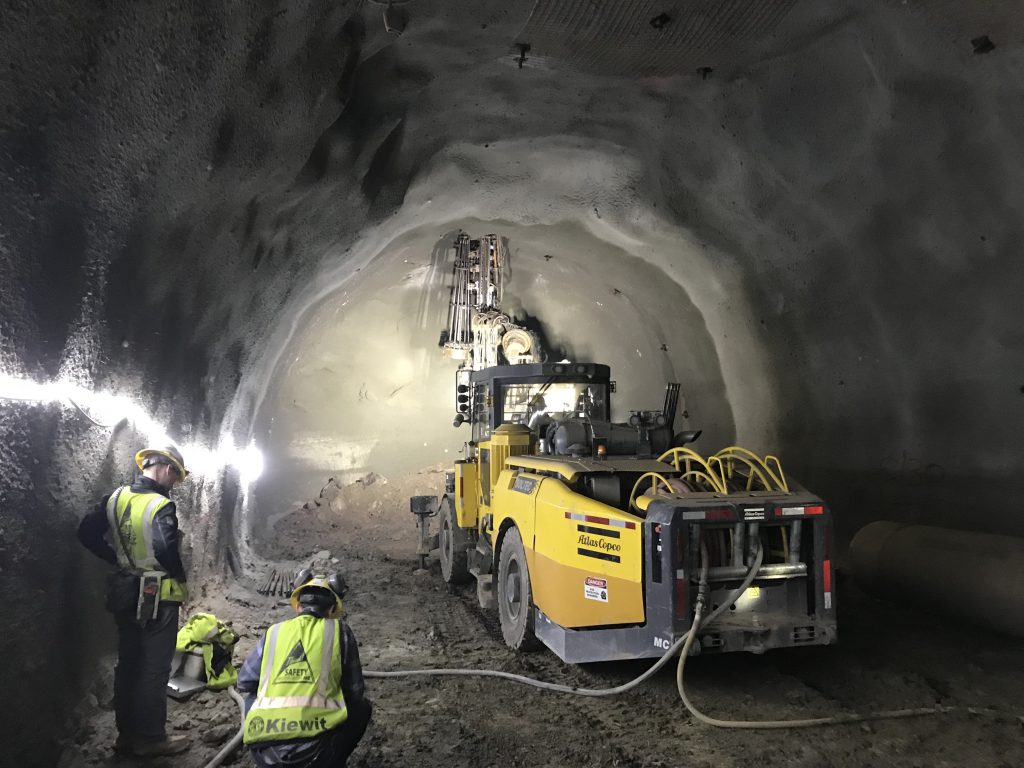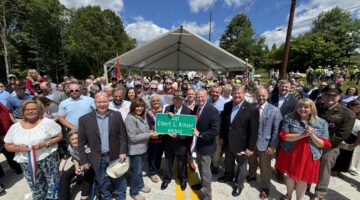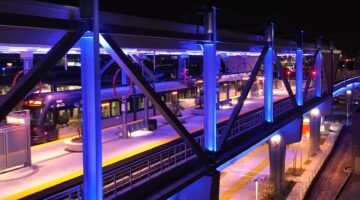As an intern on a Kiewit tunneling project in Nebraska, Hunter Sorge has had plenty of opportunity to head out to – or in this case, down into – the project site and get experience working field operations.
This summer, as he laid out rock bolt patterns, Sorge came to the conclusion that his time supporting this particular field operation wasn’t being spent as efficiently as it could be.
“I was spending a lot of my time laying out rock bolt patters by hand with a total station laser,” Sorge said. “I would stand with the bolting operation for the entire duration of the installation. I figured there had to be a better way.”
It’s critical for crews to place these bolts in very specific positions in the roof and walls of the tunnel. Because this takes place at the lead end of the tunnel, it’s not fully supported until the bolts are installed, meaning it’s unsafe for a field engineer or intern like Sorge to simply walk up to the point, mark it, and leave crews to complete the installation.
Sorge contemplated solutions. Using a paint pole to mark the locations proved too difficult at more than 20 feet out. What he settled on would require a “tool” not typical of construction sites: a paintball gun.
Sorge got to work gathering information to bring his idea to fruition.
“I first found some pricing to discuss feasibility,” he said. “Then I went to the tunnel superintendent, project manager and safety manager. Everything we needed could easily be bought online or at a sporting goods store. Our main focus was on safe handling, storage and training.”
After purchasing the supplies and completing proper training, Sorge’s idea was put to the test.
“After our shotcrete operation finished, we went down to the tunnel heading with our laser and shot our points in,” Sorge said. “Utilizing the technology of the total station laser and standing a safe distance away, we ensured the quality of our marks, grabbed the paintball gun and laid out the rock bolt pattern for the crews to install.”
Sorge’s idea worked, and this operation is now safer and hours of a field engineer’s time are saved during each rock bolting cycle, of which there are usually two per day.
Matt Swinton, who oversees all of Kiewit’s underground and tunneling projects, said this kind of contribution is typical of Kiewit interns.
“Our interns always come in with new, fresh ideas and find big ways to make an impact,” he said.



